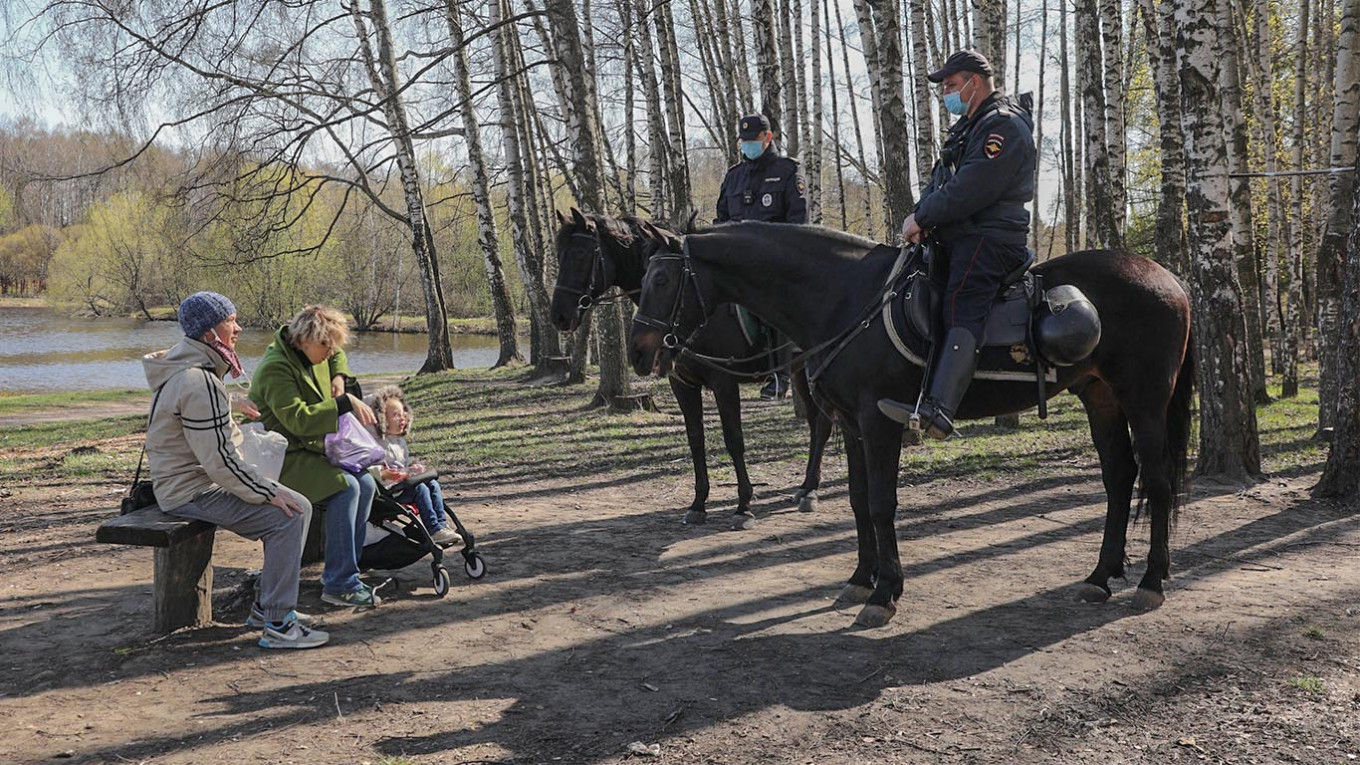In the last few days there has been a growing sense that Russia is firmly losing the “war” with the coronavirus. The number of cases of infection continues to rise every day, and it won’t be long before we see an increase in the number of deaths.
The main question now is: why is this happening? The answer, in my view, is simple and has its roots in the nature of Russia’s power structure.
Over the course of the last two “glorious decades” the Kremlin has withdrawn into itself and has become captive to the statistics and memos brought to senior officials by specially trained people while the trust of the population in the words and orders of the authorities has sunk to zero.
This epidemic has made abundantly clear how confused everyone is.
In a normal country with a responsible government and a high level of social trust, the response looks conventional. The authorities tell the truth about the scale of the epidemic. Tests are done when symptoms first appear. Nobody tries to pass off Covid-19 as pneumonia, or record diabetes or heart failure as the cause of a death resulting from coronavirus infection.
The population are not told fairy tales, but are informed of the real death statistics. Citizens are advised to stay at home, and in cases where this is impossible are asked to observe precautionary measures. It is forbidden to enter institutions, stores or public transport without a mask. People themselves demand that their friends and relatives maintain social distancing. This is what is happening in the United States, Germany, and the U.K.
In those anomalous countries with a climate of dictatorship and a society with herd-like tendencies the response is rather different. The truth about the scale of the outbreak is kept hidden — but at the same time the authorities conduct general diagnostic measures, identify the hotspots of the epidemic and completely shut them off from the outside world, tightly restricting movement within quarantined zones (in Wuhan only one member of each family was permitted to leave the house/apartment, for a maximum of an hour once every three days).
No self-isolation is prescribed for those diagnosed as sick — everyone is sent straight to the hospitals. Part of the economy essentially operates under martial law, with all regulation coming from the state. This is how China fought the epidemic.
In Russia the authorities think they can act as if they are in China and that the people will behave as they do in Europe. At all tiers of governance they are slow to admit the scale of the epidemic — yet they naively want the people to fear the consequences. At the same time, while making noises about the outbreak soon reaching a plateau, the government introduces restrictive measures of a harshness unparalleled either in Europe or in the U.S.
In Moscow alone, fines totaling 160 million rubles ($2.2 million) have already been issued, amid pointless and degrading instructions — but the city has not got close to the levels of self-isolation seen in Milan or Madrid, which were achieved without fines or police heavy-handedness.
The authorities themselves are provoking large-scale outbreaks of the epidemic: the increase in the number of infections in recent days correlates with the fiasco in the Moscow metro on April 15, and in the regions — with Easter celebrations on April 19.
The complete impotence on show as large numbers of people celebrate the May holidays will come back to haunt the government in the middle of the month, destroying hopes for an end to self-isolation and the beginning of a “restart” for the economy.
Small businesses are being shuttered under the pretext of the danger posed by the epidemic, but at Gazprom’s Chayandinskoye field almost half of the 10,000 rotation workers have fallen sick. Such a concentration of people was not regarded as a problem — after all Gazprom is a “systemically important” company. And so on.
In short, it’s the same as always. The authorities pretend that they are leading, while the people try to pretend that they are following orders. The president sits it all out in his bunker. And catastrophe draws inevitably closer.
A Message from The Moscow Times:
Dear readers,
We are facing unprecedented challenges. Russia's Prosecutor General's Office has designated The Moscow Times as an "undesirable" organization, criminalizing our work and putting our staff at risk of prosecution. This follows our earlier unjust labeling as a "foreign agent."
These actions are direct attempts to silence independent journalism in Russia. The authorities claim our work "discredits the decisions of the Russian leadership." We see things differently: we strive to provide accurate, unbiased reporting on Russia.
We, the journalists of The Moscow Times, refuse to be silenced. But to continue our work, we need your help.
Your support, no matter how small, makes a world of difference. If you can, please support us monthly starting from just $2. It's quick to set up, and every contribution makes a significant impact.
By supporting The Moscow Times, you're defending open, independent journalism in the face of repression. Thank you for standing with us.
Remind me later.








